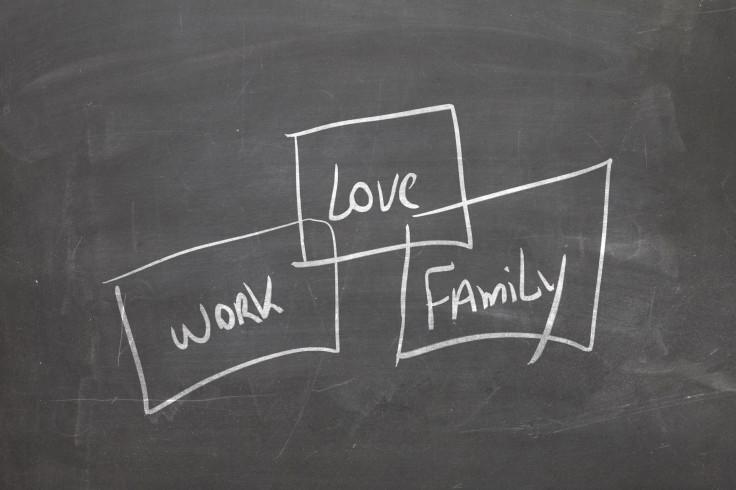When It Comes To Having It All, Millennial Workers Are Getting The Short End Of The Stick.

It appears that millennials everywhere are finding it harder to balance family and work, according to a comprehensive survey of nearly 10,000 full time workers across eight countries conducted by services firm Ernst & Young.
Amid its many conclusions, the survey found that full time millennials are often working longer and harder even after having children, face stigma when seeking more flexible schedules, and have chosen to delay children or higher education as a result of work. In the U.S., more than two-thirds of millennial parents haven't been able to take paid parental leave, despite being the generation most willing to adjust their career paths, take pay cuts, or relocate in order to better manage their work and family dynamic.
Full time working millennials often find themselves in a precarious holding position, the survey authors report. As they’re getting older, they find themselves taking on more managerial responsibilities, but they’re also becoming married and/or starting a family. More than a mismatch of time, though, it appears that the real struggle in maintaining a balance between work and family is a monetary one, One-third of workers report that the biggest reason it’s become harder to keep a steady work-life balance in the past five years is because while their cost-of-living is rising, wages aren’t. That’s a conclusion that’s been supported by a smorgaboard of data, but most recently by a 2014 report by the Economic Policy Institute, which found that inflation-adjusted hourly wages in 2014, for most industries, had either fallen or remained the same compared to 2013. As they report, it’s a trend that has been repeating itself since 1979.
Interestingly enough, as often as we Americans (rightly) complain about our jobs, it’s actually the German and Japanese who confess to having the most trouble straddling a fine line between work and home, though we do come in third, with one-quarter of workers reporting increasing work-life difficulties.
Aside from wage stagnation, the U.S. tradition of not providing mandatory paid parental leave has likely made most millennial parents foot the bill together, with 78 percent of millennials reporting having a full-time working partner compared with only 47 percent of Baby Boomers. Perhaps most frighteningly of all, nearly one of every six millennial workers has faced negative consequences for trying to have a flexible schedule. So it’s hardly a surprise that 38 percent would gladly leave to work in countries that provided paid leave if possible.
Taken as a whole, these results signify that while Gen Y might be the hardest working of any generation yet, they’re often getting the least compensated for their efforts.
Source: Work Life Challenges Across Generations. Ernst & Young. 2015
Published by Medicaldaily.com



























